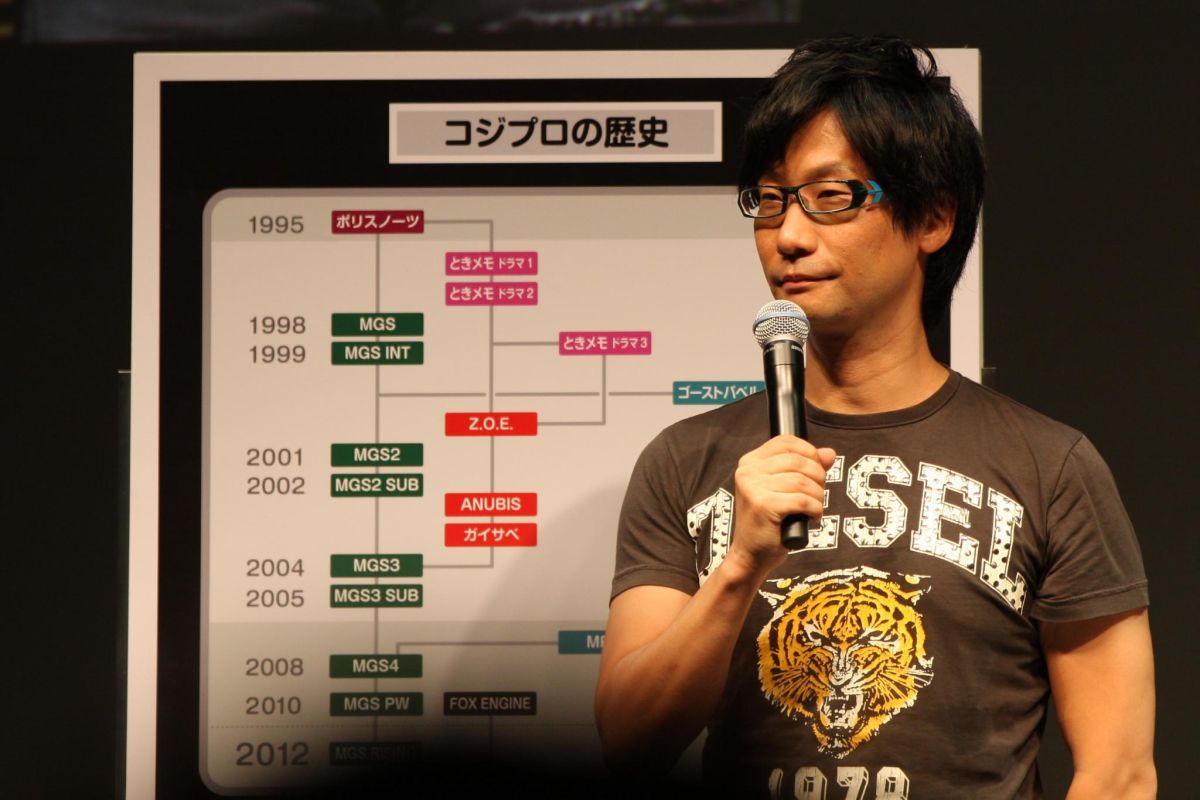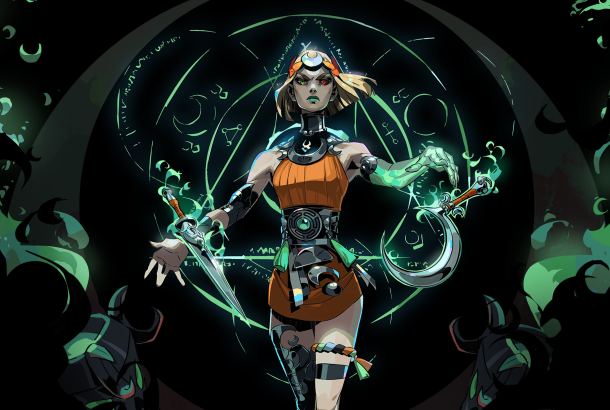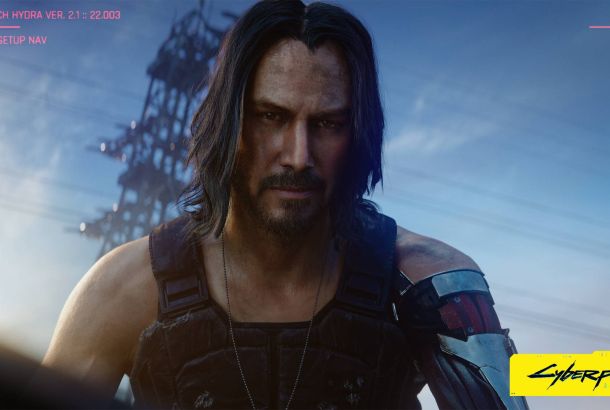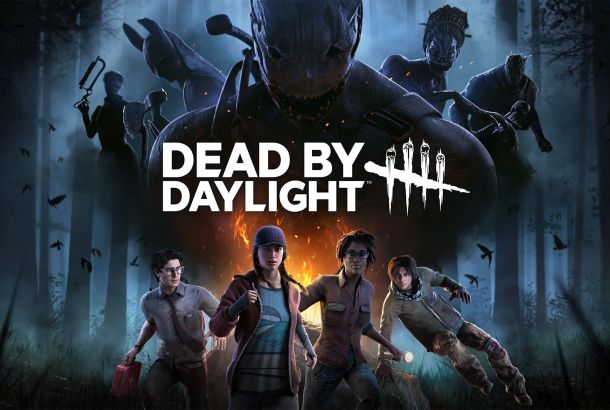Are we finally in the age of the video game ‘auteur’?
By Anna Pirie

I’ve had multiple friends ask me in the past if there are any famed video game directors in the same way we have famed film directors, and for a long time I was unsure of what to answer. It seemed more to me that development studios, rather than individual directors, would be considered the ‘creators’ as such of a game. In many ways it seemed as though the few games directors I did know were there to act as a face for the company, rather than appearing as an individual artistic force; I don’t really know if I could say, what, if anything, Todd ‘It just works’ Howard’s artistic influence was on Skyrim or Fallout 4 – only that he’s good for meme fodder.
In the face of the film industry’s abundance of auteur directors, this seemed almost shameful. Is the games medium so bereft of art, that no games director has ever had an artistic mindset strong enough to carve out a niche for themself? I remember the painful experience of trying to explain Dead Cells to an art college teacher of mine, who, in his bewilderment, asked if a well-known director could helm the game. After stopping to think for a moment, I had to ashamedly mumble that, despite my love for the game, I had no idea who, if anyone, directed it.
In spite of this, I think, after watching PlayStation’s Winter State of Play, I can pretty decisively say that we might finally be in the age of the game ‘auteur’ director. A number of upcoming titles use their directors as a key draw to the title, whose previous works have proved as the basis for speculation about the upcoming games’ styles and gameplay. I actually was inspired to write this article after noticing that the State of Play trailer for Ghost Story Games’ upcoming title Judas was almost overly eager to remind me that the project is being headed by ‘the creators of BioShock’, given that the game is being directed by Ken Levine.
Much of the immersive simulator genre was pioneered by Levine in the 90s and 2000s, having worked on the development team for Thief, and, more famously, having been the director for BioShock and its sequel BioShock Infinite. It seems as though Judas will essentially stand as a sort of spiritual sequel, given how similar it looks to Levine’s previous work. I do have to ask, is that the sign of an auteur? Or, is Levine simply unable to direct a game that differs too much from his style? Sure, this is a recognisably Ken-Levine-directed project, but I wonder if that’s demonstrative of a lack of range, rather than a strong artistic vision. We know, after the financial successes of the BioShock franchise, that any similar game would probably do well financially – so why not fund another one, rather than ask Levine to do something different?
Two of the other most anticipated titles included in the State of Play were Death Stranding 2, and Physint, both of which will be directed by legendary games director Hideo Kojima. With a tangibly recognisable directing style, Kojima is the name that is swiftly brought up whenever the discussion turns to games directors, often dubbed as ‘gaming’s first auteur’. His heavily visual directorial style is, in fact, so recognisable that, when a trailer for The Phantom Pain was released in 2012 under the title of an unknown studio, his involvement with the project was immediately identified by fans online.
Kojima’s name, again, is a major draw to these titles, and Physint being called an ‘action-espionage’ game is an obvious allusion to Kojima’s work pioneering the stealth-action genre as director and writer for the Metal Gear Solid series. Even if you hate his work – which many do, given how divisive it can be – it’s kind of hard to argue against his status as an auteur. He has even been able to display range: his singular foray into horror with P. T., an Eraserhead-esque playable trailer for a Silent Hill game he was set to direct, was somehow so good it managed to permanently change horror games.
I could go on to discuss other potential major ‘auteurs’ present in the current mainstream. Perhaps, after the release of the Shadow of the Erdtree DLC trailer, it might be apt to discuss the work of Hidetaka Miyazaki, studio head of FromSoftware. Miyazaki is famed for his very specific directorial style, featuring all sorts of weirdly specific things – an emphasis on boss design, swamps filled with poison that will really annoy you, obscurity of information, and, for some reason, needing every single character to laugh ominously after anything they say. There are plenty of other things that characterise his games, but naming them all here would probably derail this article for their sheer number and complexity.
Miyazaki is credited with the creation of the ‘soulslike’ genre, named after his most popular and potentially most influential game, Dark Souls (the gaming community is just so creative with its naming conventions). However, I don’t really think the ‘soulslike’ genre actually exists; it’s often used to describe a feature in a game that holds some similarities to one of Miyazaki’s games, or, more commonly, just a lazy way of describing something as being difficult, since that’s part of Miyazaki’s signature style.
Miyazaki’s claim to auteurship is even further supported by the existence of Dark Souls 2; it’s the only Souls title developed without his input, and is famously by far the worst game FromSoftware put out in the 2010s. The implication of this failure is that FromSoftware needs Miyazaki for his directorial style as, it turns out, it’s actually really hard to nail his weirdo ideas. He has been able to prove his range as a director too, with each title he directs featuring tangible developments upon ideas present in his previous games. Bloodborne was a huge step from Dark Souls, and Sekiro was an even bigger step still; by the time Elden Ring was released, the original Souls formula had been developed into a rather different beast.
Despite all this, I’m actually personally rather resistant to auteur theory to begin with, particularly to the major figures it’s applied to. Many famed film auteurs are often backed by tens of thousands of funding and a well-equipped crew of people whose impacts upon the film’s creation often go under-recognised. Christopher Nolan’s name is often thrown around in regards to this theory, yet there is often no mention at all of the cinematographers who make his films look the way they do, or the crew who set up the shots.
Warren Spector, director for Deus Ex, stated in an interview with IGN: “There’s a tendency among the press to attribute the creation of a game to a single person.” IGN then proceeded, in that very sentence, to attribute the creation of both Thief and Deus Ex to Spector – whoops! Either way, his point does a lot to combat the idea that directors are responsible for every little feature. When people on the internet point to silly aspects of FromSoftware games and demand to know ‘What did Miyazaki mean by this?’, I understand that this is meant in jest, however, I would also like to point out that Miyazaki himself did probably not touch that minute detail.
In the face of this, perhaps it is most accurate to describe more independent developers as auteurs. The indie boom of the 2010s has led to some immensely popular titles developed by merely a single person, and whose style can easily be recognised. It’s much easier to name these figures as ‘auteurs’, given that all aspects of development are directly implemented by them, being a one-person team, and since each of these figures has an easily recognisable style of game directing and sense of personality.
Independent developer Lucas Pope’s two games, Papers, Please, and Return of the Obra Dinn are ostensibly very different – one set at a Berlin Wall-esque border control station, the other upon an East India Company ghost ship (of sorts). Yet the main gameplay styles of these two titles share some key similarities: both revolve around being observant of a situation or person in order to fill out copious amounts of paperwork. They’re essentially both very different looks at a common theme: the politics of bureaucracy.
Alternatively, Kitty Horrorshow’s works (which have gone criminally underplayed) often depict nightmare scenarios, exploiting our fears of retro technology and prodding at the uncomfortable parts of the everyday. Her games often seem desperate to self-destruct, often wilfully crashing, and where replaying them to access more content degrades the worlds they’re set in until the original state of the game is rendered entirely inaccessible.
Is this not the purest form of auteur? Neither of these developers has had, or, I suspect, ever will have, the fame of a figure like Kojima. They’ll never influence the industry as much as Miyazaki, but that’s not really the measure of an auteur, is it?
Yes, we are in the auteur era, but it won’t necessarily be fostered positively if we continue to pour money into major companies who put out slop, in the hopes that an auteur will eventually come around to whip them into shape – current-day Bethesda, or Ubisoft. More than anything, the modern era of games has afforded independent developers the means to create their visions without needing to be backed by a massive studio and thousands of dollars of funding. There are a number of major game auteurs, however they’re not who I think necessarily deserve that title most – it’s the independent developers who continue to make weirdo games for me to revel in.







